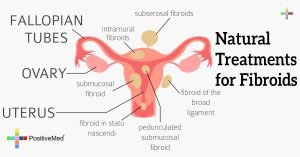
In a dynamic Q&A session with HealthTech, Ingrid Gonzalez, Google Workspace Sales Director, sheds light on the pivotal role of Artificial Intelligence (AI) in reshaping the healthcare landscape. With a focus on enhancing collaboration and efficiency, AI is proving to be a game-changer in improving patient outcomes while addressing operational challenges.
Innovative Tools for Healthcare AI
AI’s applications in healthcare, particularly diagnostic support systems and generative AI, are streamlining the interpretation of medical images and lab results. Google Cloud introduces innovative AI capabilities, such as Duet AI for Google Workspace and Gen App Builder, aiming to accelerate the development of AI-powered applications, including digital assistants.
Addressing Healthcare Challenges with AI
Gonzalez emphasizes the evolving conversations around AI, especially its potential to alleviate challenges posed by data overload and staffing shortages in the healthcare industry. AI tools like Med-PaLM 2 are actively supporting healthcare providers by simplifying administrative tasks and facilitating remote patient monitoring.
Strategic Implementation of AI in Healthcare
When discussing the implementation of AI, Gonzalez points to clinical impact forecasting and biomedical data analytics as critical areas. AI’s ability to analyze vast datasets aids in predicting disease outcomes, early detection, and automating data processing for drug discovery and disease diagnosis.
Ensuring Security in Healthcare AI
Security concerns in healthcare AI are paramount, and Gonzalez reassures that Google Cloud is committed to maintaining the highest standards of data security. With generative AI embedded into a secure platform, organizations can confidently embrace AI without compromising the integrity of healthcare information.
Crafting Tailored AI Strategies for Healthcare
Crafting a tailored AI strategy is essential for healthcare leaders entering the realm of generative AI. Gonzalez advises defining AI objectives, identifying key use cases, and selecting appropriate tools like Duet AI and Google Workspace for collaboration and integration.
Looking ahead, Gonzalez encourages healthcare IT leaders to monitor AI initiatives closely, leveraging data to refine strategies and outcomes. As a trusted AI partner, Google aims to empower customers with not only cutting-edge technology but also frameworks and education, ensuring the success of AI initiatives with confidence and security.
The Q&A underscores Google’s commitment to transformative innovation in healthcare, where AI emerges as a catalyst for improved collaboration, efficiency, and patient care. The concise insights from Gonzalez provide a glimpse into the future of AI-driven healthcare transformation.





